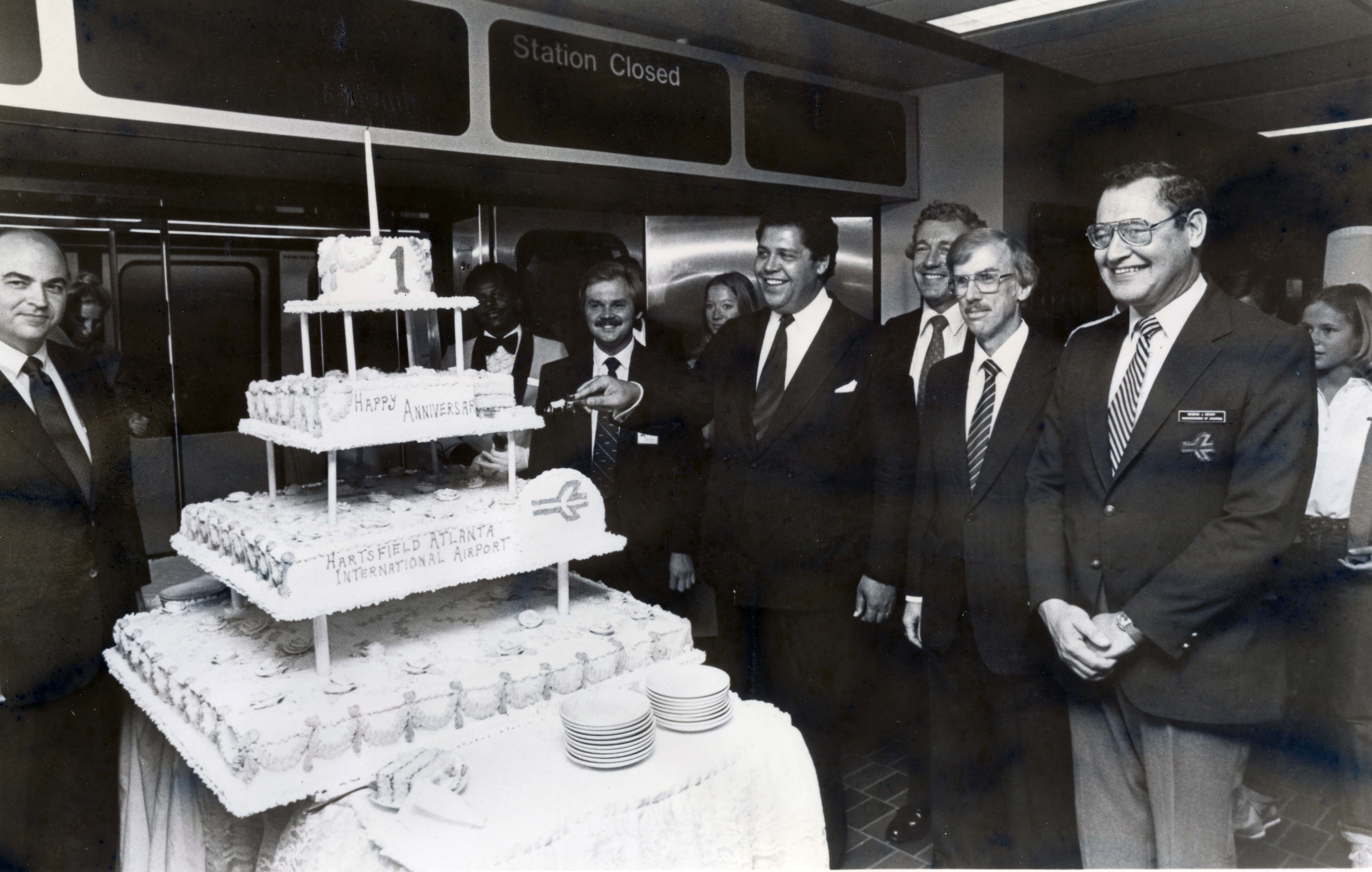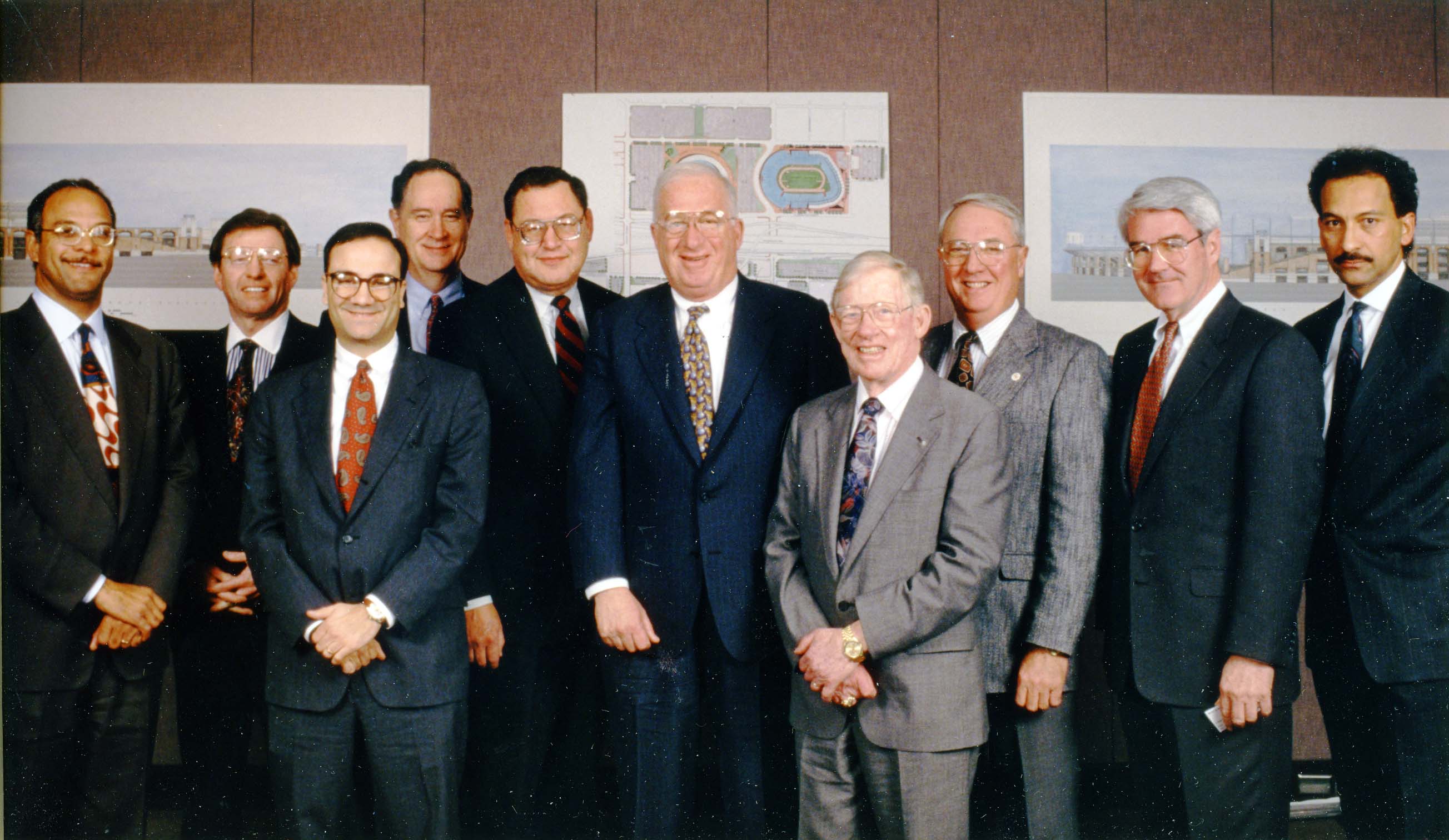George J. Berry, one of the most significant figures in the modernization of the City of Atlanta’s governance and a beloved public servant, passed away on September 7, 2019.
A change-maker and a visionary, Berry spearheaded some of the most important projects in the City of Atlanta’s history such as constructing MARTA lines, expanding Hartsfield-Jackson International Airport, and hosting the 1996 Summer Olympics. A believer and proponent of the modern “New South movement,” Berry maintained that honest, progressive government and high-quality human and physical infrastructure such as schools and multimodal transportation systems benefitted everyone. Throughout his career as an Atlanta’s Chief Administrative Officer and Aviation Commissioner to his time as Georgia Commissioner of Industry, Trade, and Tourism, Berry brought acclaim to the city and state as great places to live and work.
George J. was born on July 5, 1937, to William Cautus Berry and Lorena Crawford Berry of Blairsville, Union County, Georgia. After his father, a rural mail carrier, died when he was still very young, Berry went to live with his grandparents on a farm outside Blairsville. Shortly after graduating from Young Harris College in 1957 (then Young Harris was a two-year school), Berry joined the U.S. Army. He was honorably discharged in 1962. At the age of just twenty-five, Berry moved to Atlanta and started looking for work. Berry began his long career as a City of Atlanta employee as a tax clerk where he also met Jeannine Barrett. The two married in 1963. Berry later attended the University of Georgia and eventually graduated from Georgia State University.
A goal-oriented person, Berry’s work reshaped the City of Atlanta during the administrations of mayors Ivan Allen Jr., Sam Massell, Maynard Jackson Jr., and Andrew Young. After moving up from the City of Atlanta’s finance department, Berry became Mayor Ivan Allen Jr.’s Deputy Chief Administrative Officer where he played a pivotal role in diversifying city leadership in the late 1960s. According to Bill Banks, writing for the AJC, Berry found himself working as the “unofficial liaison between the predominantly black staffers and administrators and the predominantly white business community.” Serving as Deputy Chief Administrative Officer during a particularly tumultuous period in Atlanta history, George Berry prided himself on working to improve race relations in the city. His efforts continued as Mayor Sam Massell’s Chief Administrative Officer. He also helped facilitate the 1973 governance transition from the Board of Alderman to Atlanta City Council while working for Mayor Maynard Jackson.

George Berry cemented perhaps his most important and long-lasting legacy during his time as Commissioner of Aviation for the City of Atlanta. Appointed in 1978, Berry held that position until 1983. In that role, Mayor Maynard Jackson Jr. tasked Berry with planning and implementing the expansion of the new Hartsfield International Airport (renamed Hartsfield-Jackson International Airport in 2003). Employing a new minority-majority joint ventures concept ensuring that 20 percent of all contracts were to be awarded to minority-owned firms, the new terminal opened in 1980 with four runways operation by 1983—a fifth opened in 2006.
Governor Joe Frank Harris appointed Berry as Georgia’s Commissioner of Industry, Trade, and Tourism in 1983. With frequent travels overseas, Berry worked tirelessly to promote the state, lure international business development to Georgia, and fuel statewide economic development. The Atlanta airport improvements he had spearheaded as well as the expanded number of international flights boosted Berry’s efforts considerably.
After an unsuccessful run for lieutenant governor in 1990, Berry joined Cousins Properties, Inc., one of Atlanta’s largest real estate investment trusts, as Senior Vice President. Berry’s aptitude for major urban projects caught Governor Zell Miller’s eye, and he appointed Berry to serve as Chairman for the Metropolitan Atlanta Olympic Games Authority (MAOGA), which supervised project finances and approved contracts for the 1996 Summer Olympic Games. In this role, Berry participated in the controversial use of eminent domain that displaced an estimated 30,000 low-income Atlantans from their homes to build the Centennial Olympic Stadium (the former Turner Field and, since 2017, Georgia State Stadium).

George Berry’s contributions to the State of Georgia has not gone unheralded. The Georgia Aviation Hall of Fame awarded Berry the Chairman’s Award for his pivotal role in overseeing and expanding Hartsfield-Jackson.
George J. Berry was laid to rest on September 14 in a private ceremony in Blairsville, Georgia.
Berry participated in Bob Short’s Reflections on Georgia Politics oral history series back in 2009. His full interview is available online. Berry’s papers documenting his work with the City of Atlanta, 1996 Summer Olympics, and the Georgia Department of Industry, Trade, and Tourism are open and available for research at the Russell Library. The finding aid for the George J. Berry Papers is also available online. A small collection of Berry’s photographs featuring snapshots of Martin Luther King Jr.’s funeral procession as it passed the Georgia State Capitol in April 1968 are also available at the Russell Library.
